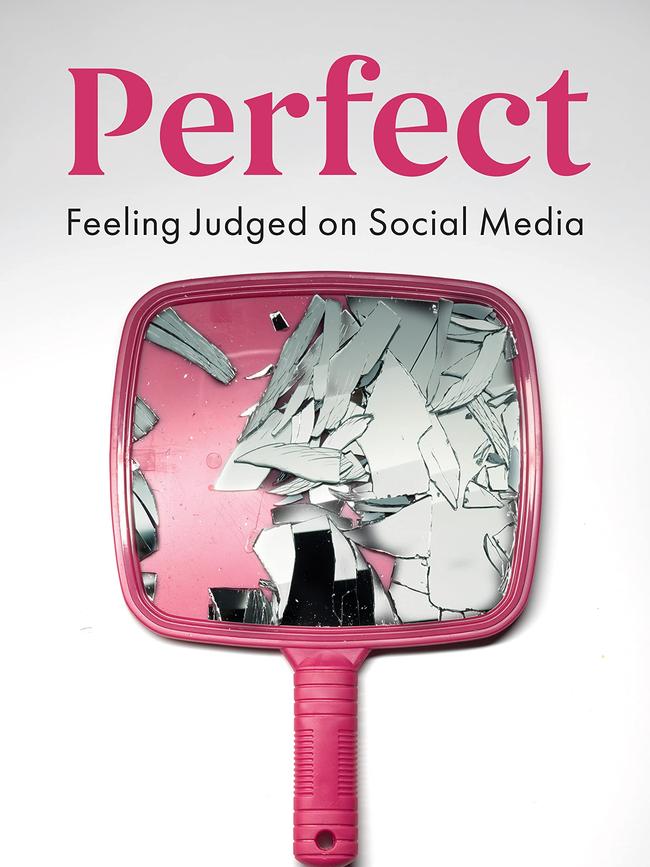Do you suffer from ‘aesthetic vigilance’ from social media use?
Smartphones have given rise to a new fear – of posting a ‘bad photo’ that is not attractive enough or good enough – and it’s crippling young women.

Smartphones are the new narcotics. As American education writer Erika Christakis noted in an investigation, they are, like narcotics, being blamed for the same issues – car fatalities, the erosion of empathy, obsessive tendencies, relationship snarls, chronic sleep disturbances, and the like. A major difference, however, is their accessibility to children and adolescents. For example, toddlers now spend more than four hours a day staring at screens. Since 1970, the average age at which regular screen use begins has dropped from four years to four months.
The damage that is being done to undeveloped brains is, of course, incalculably subtle.
British sociologist Rosalind Gill skirts biology in Perfect: Feeling Judged on Social Media. Instead, she explores the emotional impact of smartphones and social media on Generation Z, deepening our understanding of the phenomenon and the questions it triggers of “how to ‘be’ in the world, how to relate to others, how to present … These are not the trivial issues they are sometimes assumed to be – particularly when women are the subject – as if they are a matter of mere vanity or narcissism. Rather they go to the heart of what it means to be human.”

Gill’s interviews, conducted during the “polycrisis” of lockdown, global political upheaval, and the Cost of Living Crisis, were with Zoomers – 18 to 28-year-old digital natives whose lives are both documented and shaped by platforms such as Instagram, Snapchat, Twitter, and YouTube (Facebook, to Gen Z, is “staid and boring”, the stuff of Boomers). Predominantly female, they had diverse socio-economic backgrounds, physical capacities, and heritages.
Lockdown, particularly in Europe, was a masterclass in living online. While older, affluent adults may have welcomed the break from commuting or relentless professional obligations, using the time to bake sourdough and take up the piano or ballet, the young, at the height of their most intense educational, mating, and socialising periods, crashed. Their faith in their ability to change the world evaporated, a loss reflected in the current epidemic of apathy of Australian schoolchildren. To them, the imperfections of the world became intolerable.
Gill identifies the prevalence of “perfection” in social media as being partly responsible. Like all conditioning tools, perfection in itself becomes the “horizon of expectation”: “the right food, the right drinks, the right locations and venues, the right friends, and even the right attitudes and dispositions – with the mandate not just to be visible, but to present as happy, fun and sociable, no matter how you actually feel.” Life as a performance.
While failure can, ironically, lead to great happiness, that which Gill identifies as the neoliberal capitalist mandate of “success” can cripple in innumerable ways – among them, fear of experimentation. As she reports, “young people, particularly young women, are operating in a context in which there is a prohibition on failing, and instead they are being called upon to live up to ever more restrictive norms of behaviour and self-presentation. The flipside of the emphasis on perfection, then, is the terror of ‘falling down’, the FGW (the ‘fear of getting it wrong’).”
Parallel to this fear is the experience of being watched. Gill writes, “Young women repeatedly expressed the sense of being under surveillance in a way that was both evaluative and forensic.” This microscopic gaze is then turned onto the self, literally and figuratively – perceiving the self not in terms of strengths but flaws, however trivial (the “pedagogy of defect”), or, as British Professor Simidele Dosekun called it, “aesthetic vigilance”. Gill observed that the “fear of posting a ‘bad photo’ that is not attractive enough or good enough pulsed through young women’s talk.” Failure – trying too hard, of posting too much, of not posting enough, of seeming conceited, of being “fake”, and so on – frequently leads to “coruscating” anxiety.
After starring in I Am Ruth, a 2022 film about a mother’s alarm over her daughter’s obsession with social media, Academy Award winning actress Kate Winslet stressed the need for social accountability by the social media giants. Age limits are essential, she argued, to protect children’s mental health because parents feel “utterly powerless” to halt the impact.
Ironically, it is mothers who model that which tech consultant Linda Stone coined Continuous Partial Attention – the distracted, haphazard bursts of concentration that now pass for maternal/child communication. This style of parental interaction interrupts the cuing system – based on affectionate, attuned maternal focus on the child – that is the axis of all emotional security and literacy. But how can the attentional capacity of a child who has never been addressed in a calm, tender and sustained fashion, or who has never been addressed with the necessary sense of being the maternal priority, be anything but fractured?

Gill takes the less controversial route, focusing on the impact of peer pressure rather than on the disturbing trend for emotionally absent parenting. In the end, this perspective reduces her argument to tabloid tropes – age v youth, technology v love, and so on – whereas reality is significantly more nuanced.
Like narcotics, smartphones are easy to blame for Gen Z’s malaise. While Perfect: Feeling Judged on Social Media flags an array of alarming cultural imperatives, it also acts as a decoy, distracting attention from the real problem – namely, why do so many mothers now find smartphones more compelling than their children and how can we change the situation?
Perfect: Feeling Judged on Social Media by Rosalind Gill (Polity, 236pp, $32.95). Antonella’s new book is Apple: Sex, Drugs, Motherhood and the Recovery of the Feminine. Follow her on Instagram.com/gambottoburke.





To join the conversation, please log in. Don't have an account? Register
Join the conversation, you are commenting as Logout